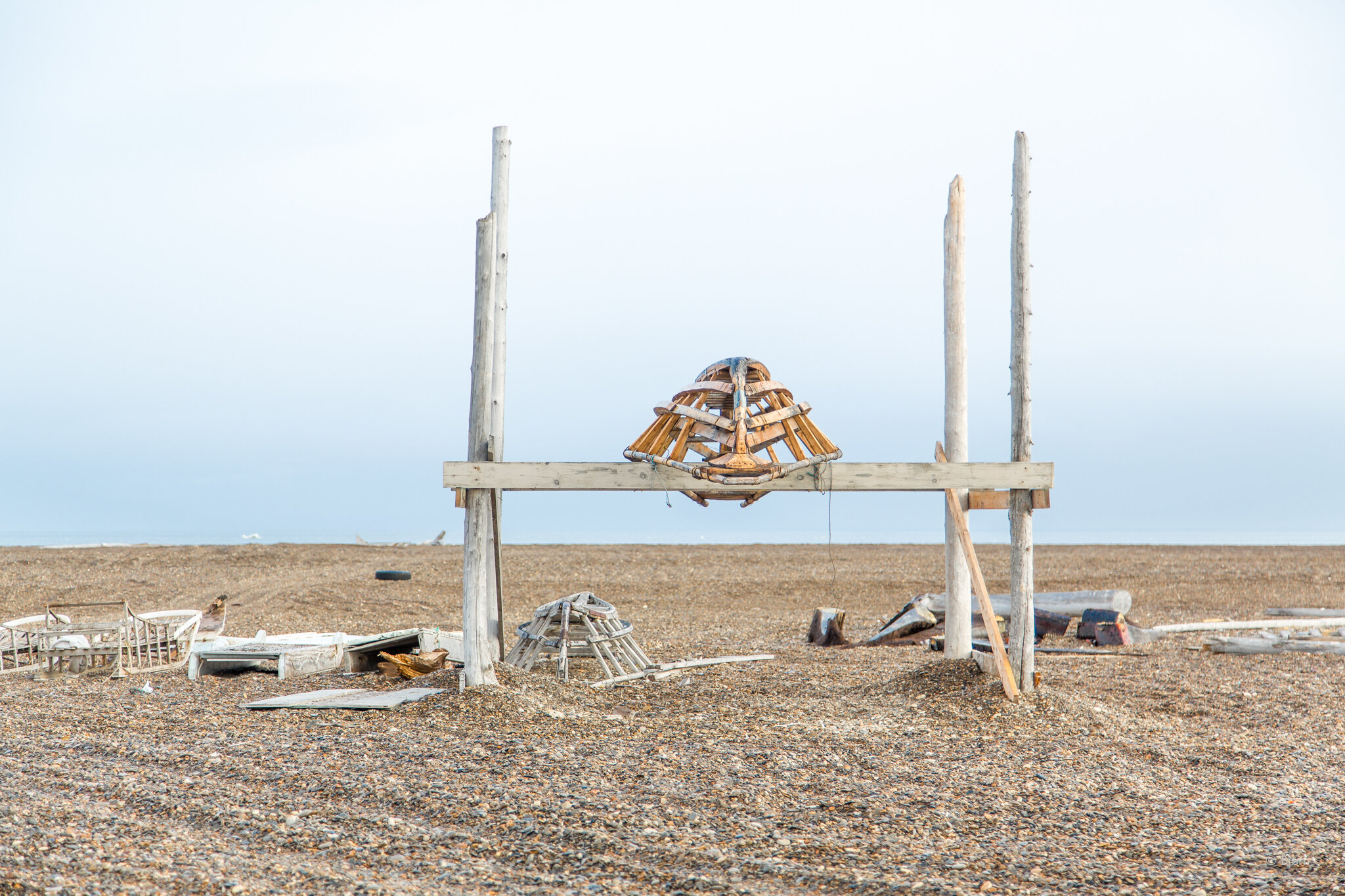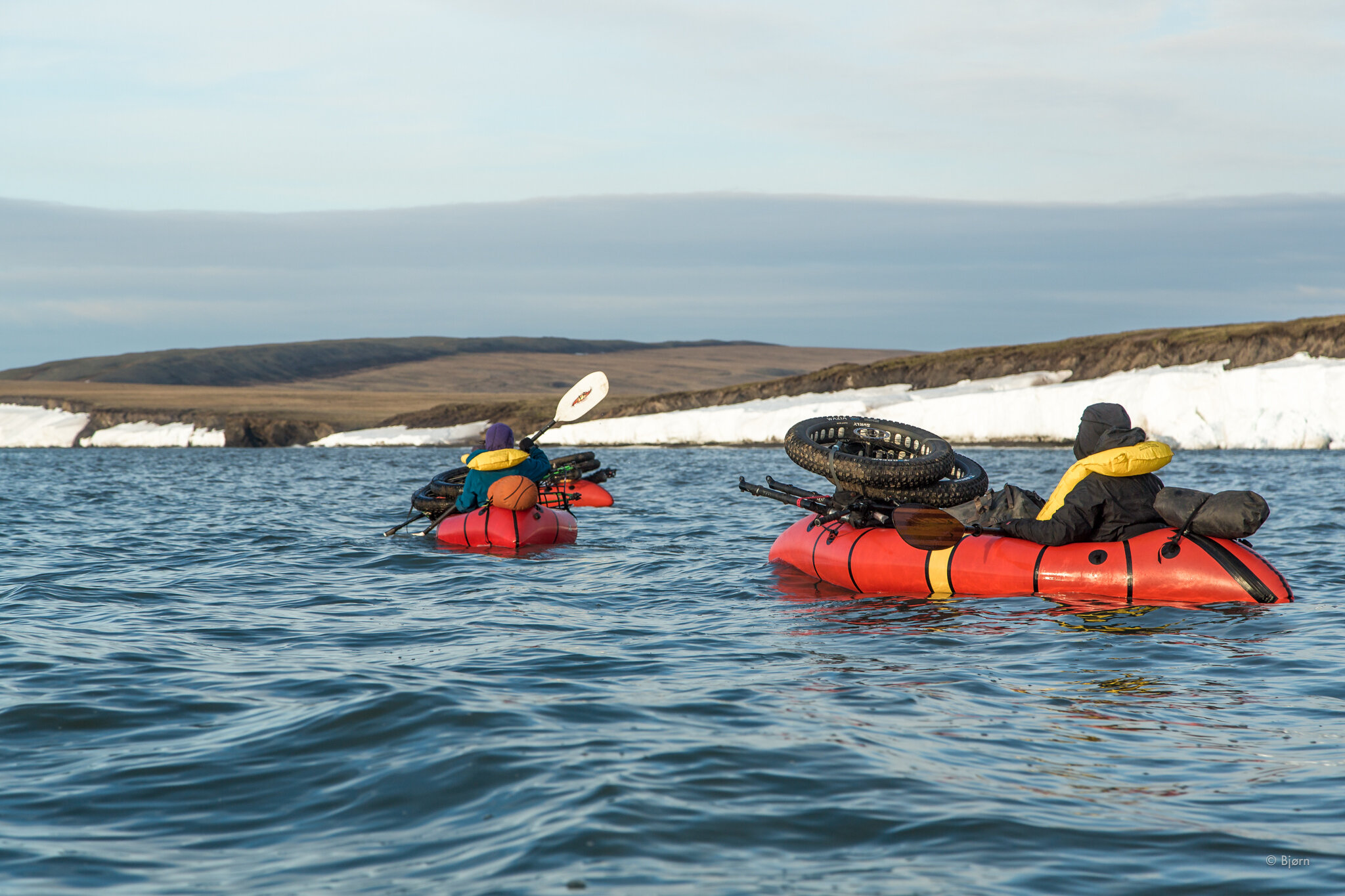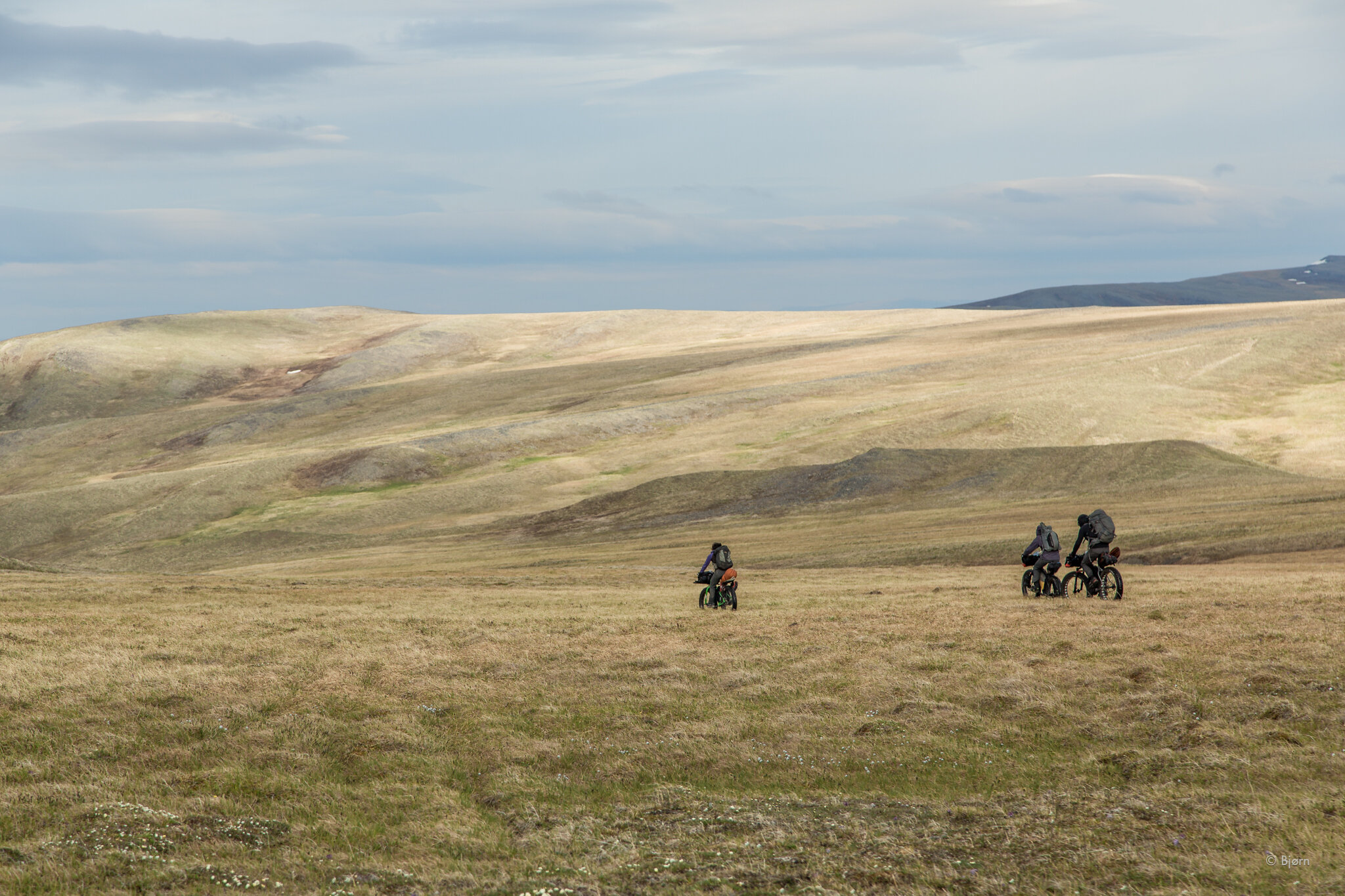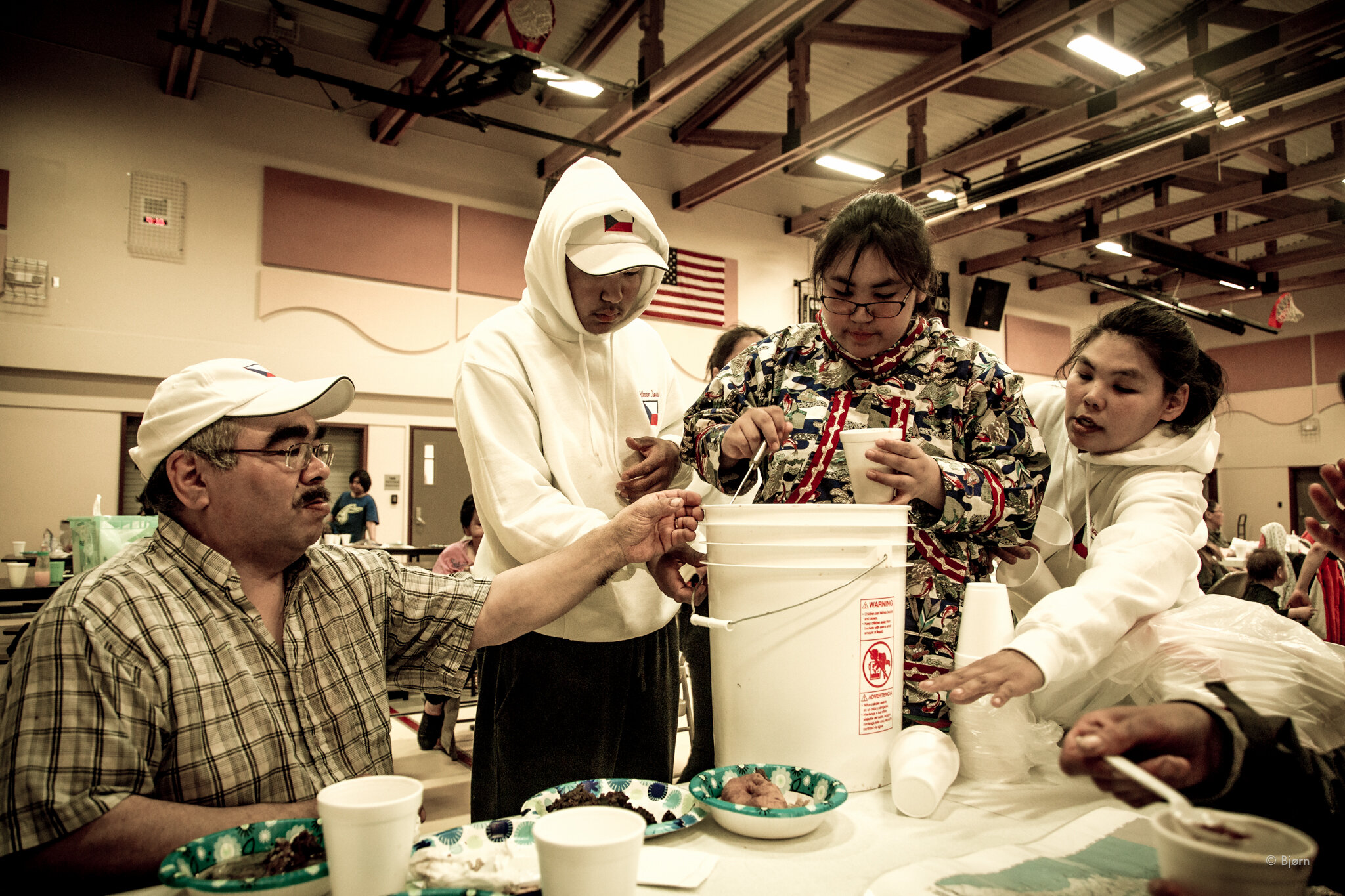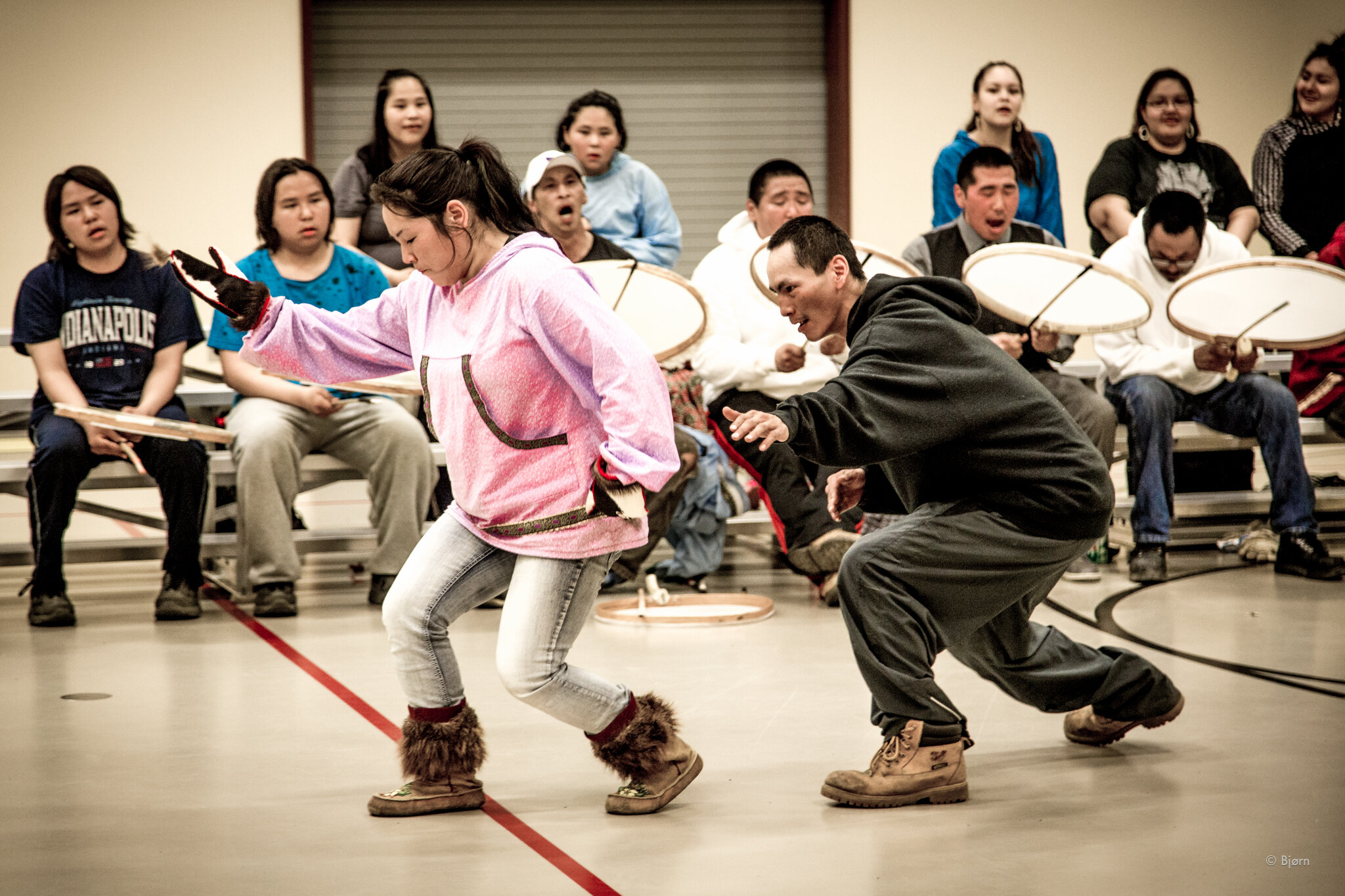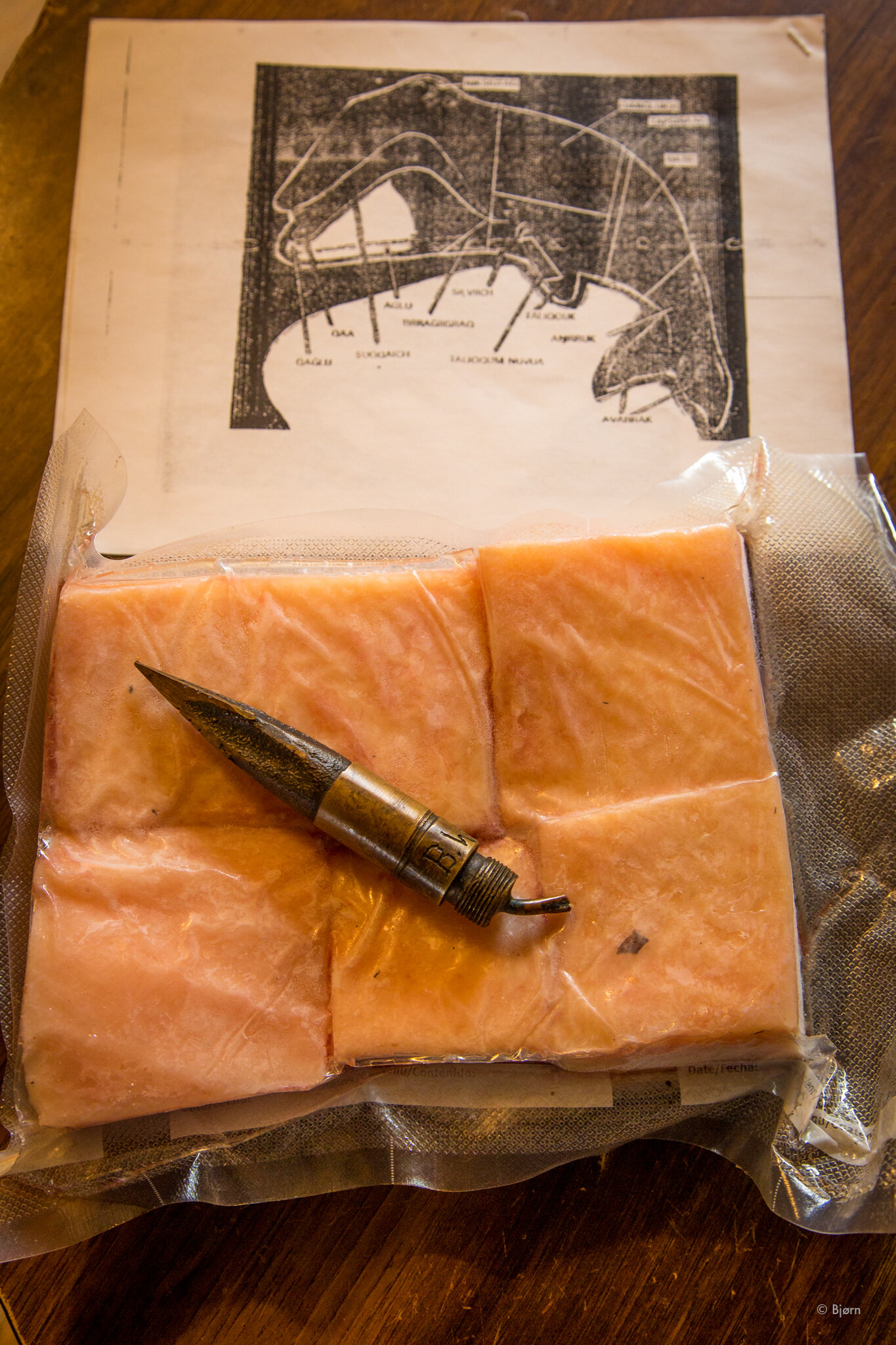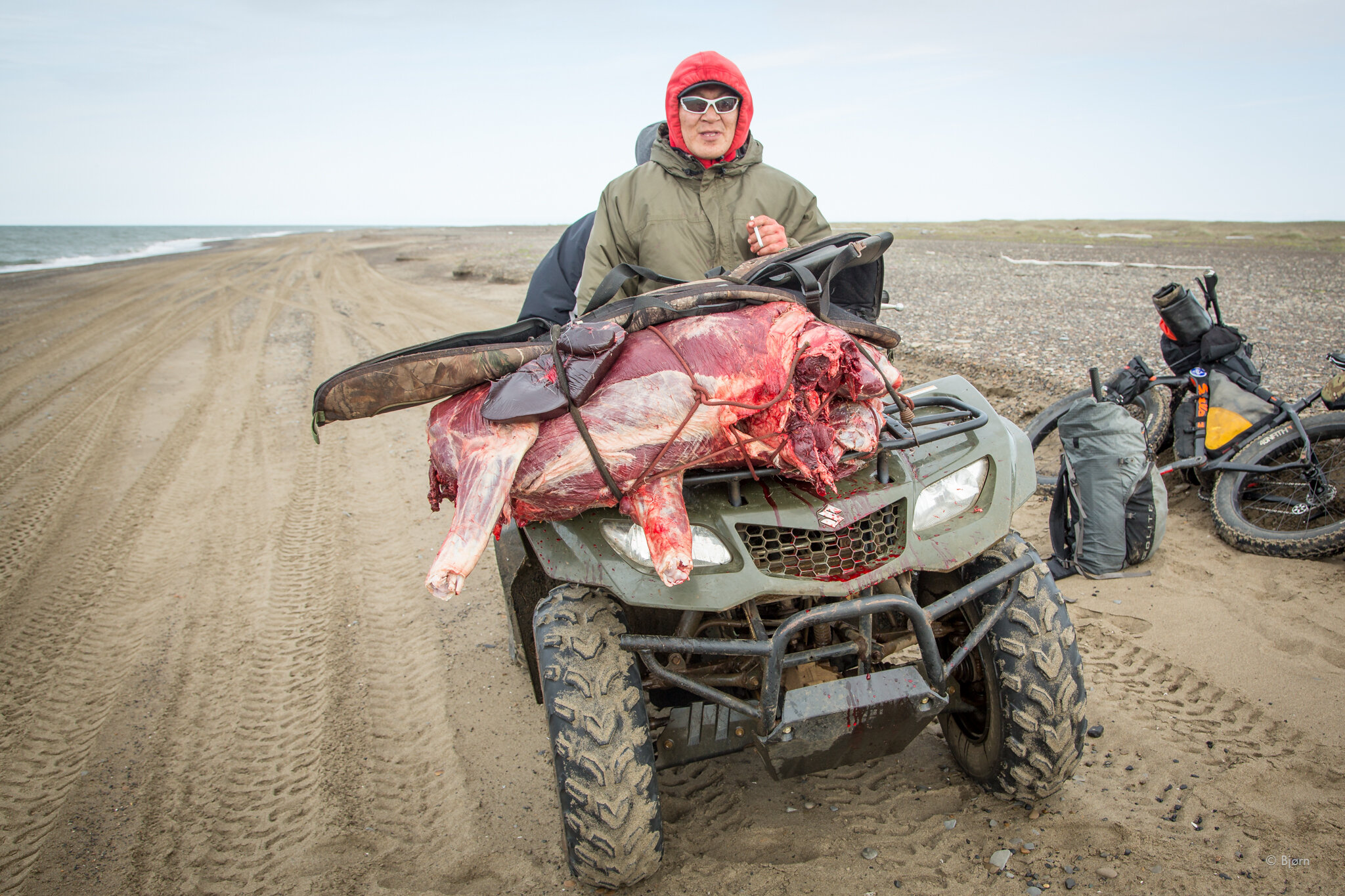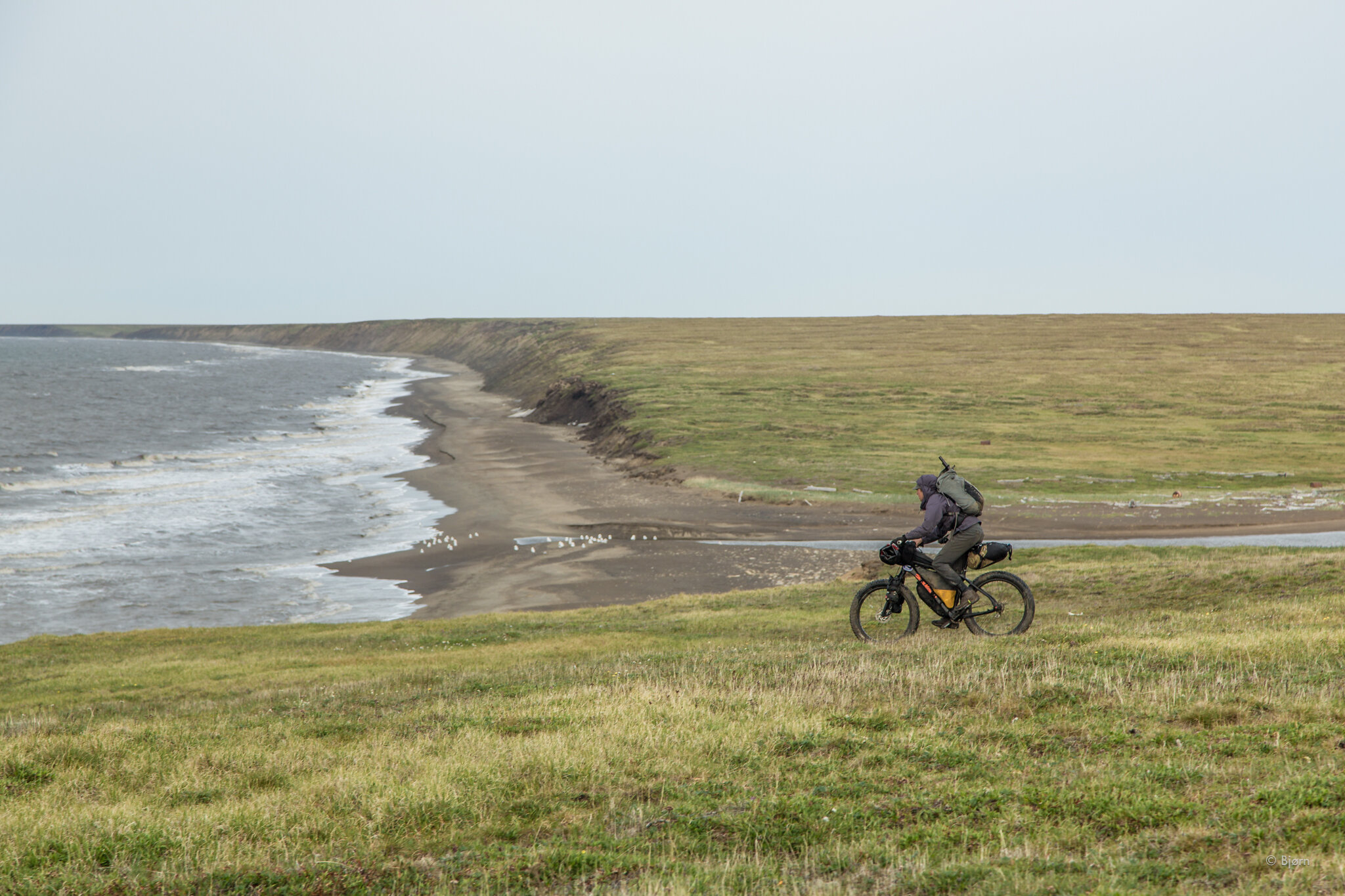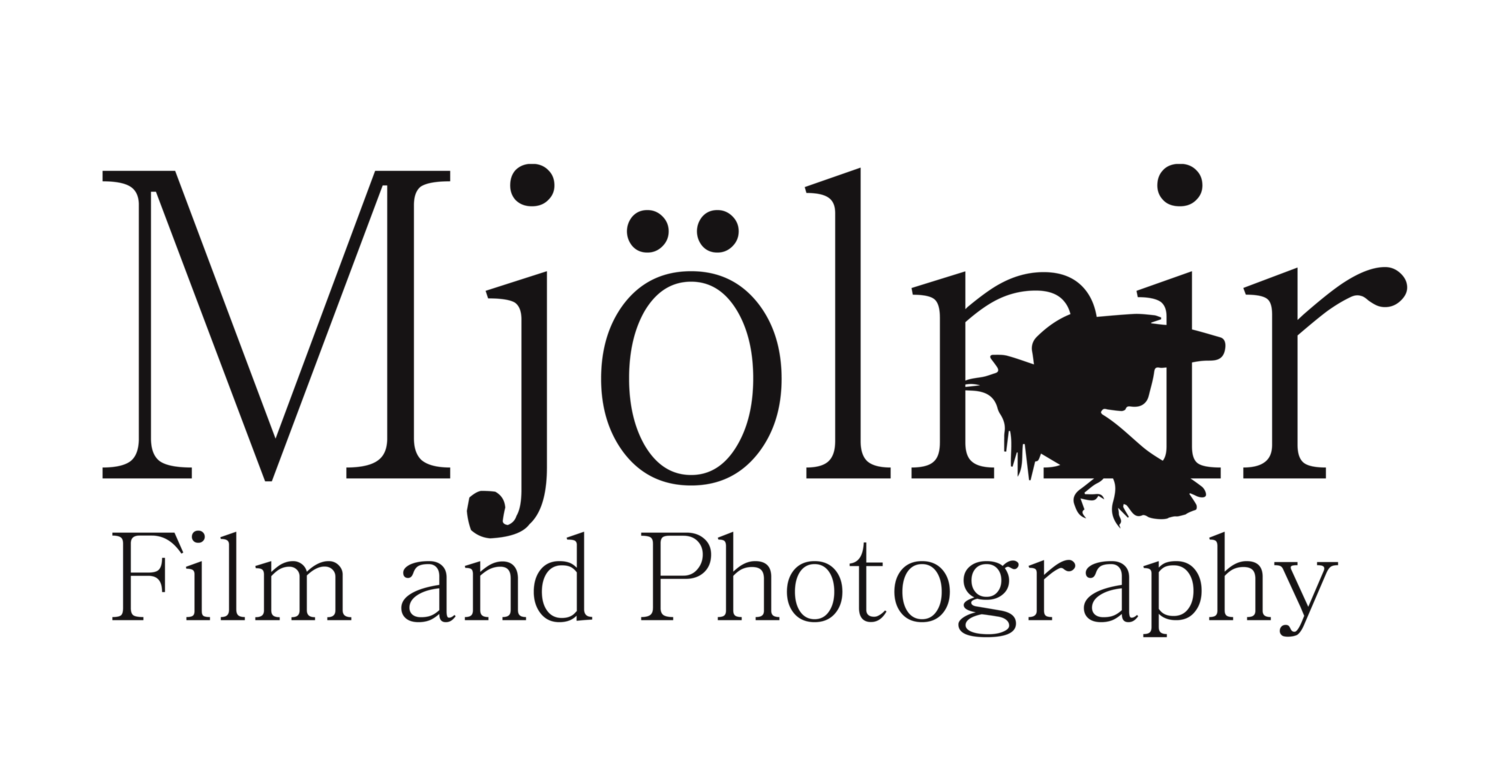Walking down the unfamiliar school hallway, my ears led me toward the cacophonous gymnasium. As I crossed the threshold into the bustling space, I paused for a second, allowing my brain to re-calibrate. I’d just spent two weeks in the Arctic wilderness of Alaska. The flickering fluorescent lights, strong odors of wild-caught food, and the sound of over a hundred voices bouncing off the walls, pile-driving all at once into my ear canal, was a stark contrast.
Just after summer solstice, my girlfriend Kim and I, along with two of our adventure pals, had set out from Point Hope, with expedition-loaded fat-bikes. Our goal was to become the first people to fat-bike from the village, across the top of Alaska, to Utqiagvik (formerly Barrow). We’d endured a three-day storm with wind speeds up to 100 miles an hour, but we’d also been treated to spectacular conditions, abundant wildlife and some of the most remote terrain I’d ever experienced. When we arrived at Point Lay, known locally as Kali, the first village along our 400-mile route, our bodies were running on fumes. We desired a resupply and advice from locals about the way ahead.
“Welcome to Kali,” a sweet Inupiaq elder with a bent spine said as he lifted his soft hand to mine. “Come in and eat. Today is Nalukatak - the whale festival.”
The gymnasium had been transformed into a mess hall - outfitted with school cafeteria folding tables covered in butcher paper. Blue tarps lined the floor, protecting it from errant drips or spills. A string of serving tables lined the far wall, piled with pots, disposable aluminum platters and five gallon buckets bursting with food. Paper plates, jugs of juice, carafes of coffee and tea crammed into every bit of remaining space on the overburdened tables.
I peered down the isles of seated locals looking for my teammates. I found them seated at the far end of the gymnasium, map already out, engaged in conversation with a man whose calloused finger pointed out landmarks. “This is Doug Rexford,” Kim said. “He’s the captain of the whaling crew.” We were invited to sit and eat with him - the praiseworthy leader at the table of honor.
The day before our little cadre arrived in Kali, we’d seen an enormous pod of beluga whales – the most any of us had ever seen at one time. The local hunters had seen this pod too. Using contemporary means yet millennia-old hunting techniques, they herded the pod with their skiffs to the inside of a lagoon and dispatched the number of animals they needed to see the community through the long, cold winter ahead.
“Would you like some boiled beluga muktuk,” a woman standing behind me, holding a 3-gallon pot and ladle asked me. “Quyanaq. Yes, please.”
Growing up in Interior Alaska, our closest family friends were from the Siberian Yupik village of Gamble. Through many shared meals, I’ve eaten a lot of bowhead whale and had tasted beluga before but this was to be my first experience eating it boiled.
“The boiled muktuk is best when the beluga is fresh,” Doug told me as I picked up a one-inch cube of the warm blubber and skin layer - a circumpolar mainstay and calorie-dense treat. My teeth effortlessly fell through the substance, oozing a smooth, rich oily flavor throughout my mouth. I closed my eyes and slowly chewed, savoring every molecule. Before reaching for my second piece, I offered my impression: “To say that boiled beluga is like butter is a disservice. They should say that butter is like boiled beluga, but not as good.”
Over the next several hours, we glued our trail-worn bottoms to the cafeteria seats and relished one course after another. As soon as the swan soup had been served and consumed, along came someone dishing out caribou ribs or seal steaks or dried whitefish with seal oil. The waitrons walked the aisles, filling every plate or bowl, always serving the elders first, until each offering was finished.
Our wind chapped faces glistened with grease and a surge of nutrition flooded our hungry mitochondria. The food that had supported our host’s ancestors in this severe Arctic environment was exactly the fuel we needed to continue our journey.
The following day, as we rode away from the village, armed with insight, encouraged by new friends, and loaded down with leftovers I sucked my teeth seeking out any overlooked morsel.
